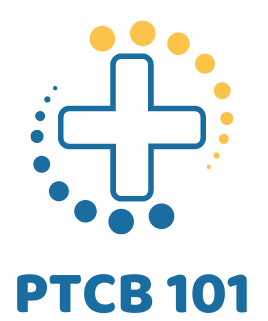Looking for programs in a specific city? Check out our lists of PTCB in Charlotte, Raleigh, Greensboro, Durham, Winston-Salem, Fayetteville, Cary, Wilmington, High Point, and Concord.
Starting your journey to become a pharmacy technician in North Carolina is straightforward and rewarding.
- Get the right education: Start with a high school diploma or GED.
- Register with NCBOP: Secure your spot by registering with the North Carolina Board of Pharmacy.
- Gain hands-on experience: Complete training and become certified.
Ready to build a stable career? Follow these steps to become a pharmacy technician in North Carolina.
- Understanding the Role of a Pharmacy Technician
- Assessing the Benefits of a Pharmacy Technician Career
- North Carolina’s Requirements for Pharmacy Technicians
- Educational Pathways and Training Programs
- Certification and Licensure: Steps to Get Certified
- Find Pharmacy Technician Programs Near You
- Financial Aid and Scholarships for Pharmacy Technician Programs
- Preparing for the Pharmacy Technician Certification Exam
- Job Search and Employment Opportunities
- Career Advancement and Continuing Education
- Looking for Pharmacy Technician Information On States Bordering North Carolina?
- Conclusion
Understanding the Role of a Pharmacy Technician
As a pharmacy technician, you play an essential role in the healthcare system. Your duties span a range of responsibilities that keep the pharmacy running smoothly and help ensure patients receive their medications accurately and safely.
Core Responsibilities
Pharmacy technicians support pharmacists by managing many day-to-day tasks, including:
- Medication Dispensing: You will assist pharmacists in preparing and dispensing prescription medications. This task requires precision to ensure the correct medications and doses are provided.
- Inventory Management: Keeping track of medication stocks, placing orders for necessary supplies, and ensuring that storage practices meet legal standards is crucial.
- Patient Interaction: Pharmacy technicians interact with patients, answering questions about medications, providing information about drug interactions, and helping patients understand their prescriptions.
Skills and Attributes for Success
Certain qualities and skills can help you excel as a pharmacy technician:
- Attention to Detail: Accuracy in every task is critical, especially when dealing with prescriptions.
- Customer Service: Good communication skills and a helpful demeanor can improve patient satisfaction and cooperation.
- Organizational Skills: Efficiently managing records, inventory, and workflow contributes to the smooth operation of the pharmacy.
Work Environment
Pharmacy technicians are usually employed in various settings. These include:
- Retail Pharmacies: Chain pharmacies and independent drugstores.
- Hospital Pharmacies: Supporting pharmacists in hospitals handling inpatients and outpatients.
- Long-term Care Facilities: Providing medications for residents of nursing homes and assisted living facilities.
Assessing the Benefits of a Pharmacy Technician Career
Choosing to become a pharmacy technician in North Carolina opens the door to numerous benefits and opportunities.
Job Stability and Growth
Healthcare is a rapidly growing industry. As pharmacies are essential services, the demand for skilled pharmacy technicians is robust.
- Consistent Employment: Pharmacists rely heavily on technicians to run the pharmacy efficiently, ensuring job stability. Learn more about this on the Bureau of Labor Statistics Pharmacy Technicians page.
- Advancement Opportunities: With experience and additional certifications, you can move into specialized roles or supervisory positions.
Attractive Compensation and Benefits
The pharmacy technician role offers competitive compensation with benefits including health insurance, retirement plans, and more.
Fulfilling Work
- Direct Impact on Patient Care: Your work directly affects patients’ health and well-being.
- Continuous Learning: The healthcare field is always evolving, providing continuous learning and professional growth opportunities.
North Carolina’s Requirements for Pharmacy Technicians
Educational Prerequisites
To start your path to becoming a pharmacy technician in North Carolina:
- High School Diploma/GED: This basic qualification is necessary to enroll in training programs and register with NCBOP.
- Age Requirement: You must be at least 18 years old.
Background Check
A clean background check is essential before you can register with the NCBOP. This step ensures the safety and integrity of the pharmacy environment.
Registration with NCBOP
You need to register with the North Carolina Board of Pharmacy:
- Submit Application: Complete the registration form and submit it along with the applicable fee.
- Annual Renewal: Maintain your registration by renewing it annually and complying with continuing education requirements.
Certification
Even though certification might not be mandatory, it significantly boosts your employability and professional standing. Certifications from recognized organizations validate your skills and knowledge.
Educational Pathways and Training Programs
Types of Programs
In North Carolina, you can choose from various educational pathways to become a pharmacy technician:
- Certificate Programs: These programs offer a fast-tracked route, typically completed within one year.
- Associate Degrees: More comprehensive, these programs last about two years and provide deeper knowledge and skills.
Accredited Institutions
Accreditation ensures that the program meets industry standards. Community colleges such as:
- Wake Technical Community College: Known for its comprehensive healthcare curriculum.
- Central Piedmont Community College: Offers both day and evening classes to accommodate different schedules.
Additionally, online programs offer flexibility for those balancing work or family commitments.
On-the-Job Training
Some employers provide on-the-job training, allowing you to gain hands-on experience while working under licensed pharmacists.
Certification and Licensure: Steps to Get Certified
Choosing a Certification Exam
To enhance your qualifications, consider pursuing certification through:
- Pharmacy Technician Certification Board (PTCB): Taking the Pharmacy Technician Certification Exam (PTCE).
- National Healthcareer Association (NHA): Opting for the Exam for the Certification of Pharmacy Technicians (ExCPT).
Preparing for the Exam
Prepare thoroughly to pass the certification exam:
- Study Materials: Utilize textbooks, online resources, and practice tests.
- Preparation Courses: Enrolling in review courses can provide structured guidance.
- Study Groups: Collaborate with peers to discuss challenging topics and share resources.
Applying for Licensure in North Carolina
Once certified:
- Submit Proof of Certification: Provide documentation to the North Carolina Board of Pharmacy.
- Complete the Registration Form: Fill out the necessary paperwork for licensure.
- Pay the Licensure Fee: Ensure to pay the required fees for processing.
Regularly renew your licensure and engage in continuing education to keep your skills current and relevant.
Find Pharmacy Technician Programs Near You
Locating an accredited pharmacy technician program in North Carolina is crucial to your success. Whether you prefer on-campus learning or the flexibility of online courses, you have many options.
Local Community Colleges
Several community colleges in North Carolina offer accredited pharmacy technician programs:
- Wake Technical Community College: Known for its comprehensive healthcare curriculum.
- Central Piedmont Community College: Offers both day and evening classes to accommodate different schedules.
Online Programs
Online programs offer flexibility, making it easier to balance your education with work or family commitments. These programs cover the same essential topics as in-person courses, including pharmacology, pharmacy law, and medication administration. Some reputable institutions offering online pharmacy technician training include:
- Penn Foster Career School
- Ashworth College
How to Select the Right Program
When choosing a pharmacy technician program, consider the following factors:
- Accreditation: Ensure the program is accredited by recognized bodies, such as the American Society of Health-System Pharmacists (ASHP).
- Cost: Compare tuition fees and other expenses. Look into financial aid options to make your education more affordable.
- Curriculum: Review the coursework to ensure it includes all necessary training and preparation for certification exams.
- Flexibility: Decide if you need a program that offers evening classes or online options to suit your schedule.
Financial Aid and Scholarships for Pharmacy Technician Programs
Financial assistance can make your journey to becoming a pharmacy technician more accessible. Explore various options that can help you fund your education.
Federal Financial Aid
By filling out the Free Application for Federal Student Aid (FAFSA), you can determine your eligibility for federal grants, loans, and work-study programs. Some popular federal aid options include:
- Pell Grants: Need-based grants that do not require repayment.
- Stafford Loans: Low-interest student loans available to eligible students.
Scholarships
Many institutions and organizations offer scholarships specifically for healthcare and pharmacy technician programs. Some notable scholarships include:
- The American Association of Pharmacy Technicians (AAPT) Scholarship: Provides financial support to students pursuing pharmacy technician training.
- Local College Scholarships: Check with your chosen institution for scholarships dedicated to pharmacy technician students.
Employer Assistance
Some employers offer tuition reimbursement programs for employees who complete pharmacy technician training. This benefit can significantly reduce your out-of-pocket costs.
Preparing for the Pharmacy Technician Certification Exam
Adequate preparation is essential for passing the Pharmacy Technician Certification Exam (PTCE) or ExCPT. Here are some tips to help you succeed:
Study Materials
Utilize recommended study materials, such as:
- Textbooks: Covering pharmacology, pharmacy law, and medication management.
- Online Resources: Websites like PTCB and NHA provide study guides and practice tests.
Practice Tests
Taking practice tests helps familiarize you with the exam format and identify areas needing more focus. Regular practice can also boost your confidence.
Preparation Courses
Consider enrolling in a preparation course. Both online and in-person classes offer structured reviews and expert guidance. These courses often include:
- Review Sessions: Focused on key exam topics.
- Exam Simulations: Mimicking the actual test environment.
Study Groups
Joining a study group allows you to share resources, discuss challenging topics, and stay motivated. Collaborating with peers can enhance your understanding and retention of material.
Job Search and Employment Opportunities
Upon certification, you can start searching for pharmacy technician jobs in North Carolina. Here’s how to find job opportunities and stand out as a candidate:
Job Boards and Online Listings
Websites like Indeed, Glassdoor, and LinkedIn are excellent starting points. Use specific keywords such as “pharmacy technician jobs in North Carolina” to narrow your search.
Networking
Networking can provide valuable job leads. Attend job fairs, join professional organizations, and connect with professionals already working in the field. Networking can also offer insights into the industry and potential mentorship opportunities.
Staffing Agencies
Healthcare-specific staffing agencies can help match you with available positions that fit your skills and preferences. These agencies often have relationships with hospitals, retail pharmacies, and other healthcare facilities.
Types of Employment Settings
Pharmacy technicians can work in various settings, including:
- Retail Pharmacies: Chain and independent drugstores like CVS and Walgreens.
- Hospital Pharmacies: Providing medications for patients in hospitals.
- Long-term Care Facilities: Supplying medications to residents in nursing homes.
- Pharmaceutical Companies: Involved in research, development, and distribution of medications.
Career Advancement and Continuing Education
Advancing your career as a pharmacy technician involves gaining experience, pursuing additional certifications, and engaging in continuing education.
Opportunities for Advancement
With experience and additional credentials, you can move into roles such as:
- Lead Pharmacy Technician: Overseeing other technicians and managing operations.
- Specialized Technician: Working in areas like sterile compounding or chemotherapy.
- Pharmacy Technician Instructor: Teaching aspiring technicians in training programs.
Continuing Education
Staying updated with the latest industry trends is crucial. Many states require pharmacy technicians to complete continuing education units (CEUs) annually. Some professional development options include:
- Workshops and Seminars: Covering new developments and best practices.
- Online Courses: Offering flexibility to learn at your own pace.
- Professional Conferences: Providing networking opportunities and exposure to new technologies.
Looking for Pharmacy Technician Information On States Bordering North Carolina?
In addition to North Carolina, we suggest looking for schools in nearby states.
- How to Become A Pharmacy Technician in Virginia
- How to Become A Pharmacy Technician in Tennessee
- How to Become A Pharmacy Technician in South Carolina
- How to Become A Pharmacy Technician in Georgia
- How to Become A Pharmacy Technician in Kentucky
Conclusion
Becoming a pharmacy technician in North Carolina requires dedication, proper education, and certification. By following these steps, you can embark on a rewarding career with numerous opportunities for growth and fulfillment. For more information on training programs, registration, and certification, visit the North Carolina Board of Pharmacy website or contact local educational institutions.

